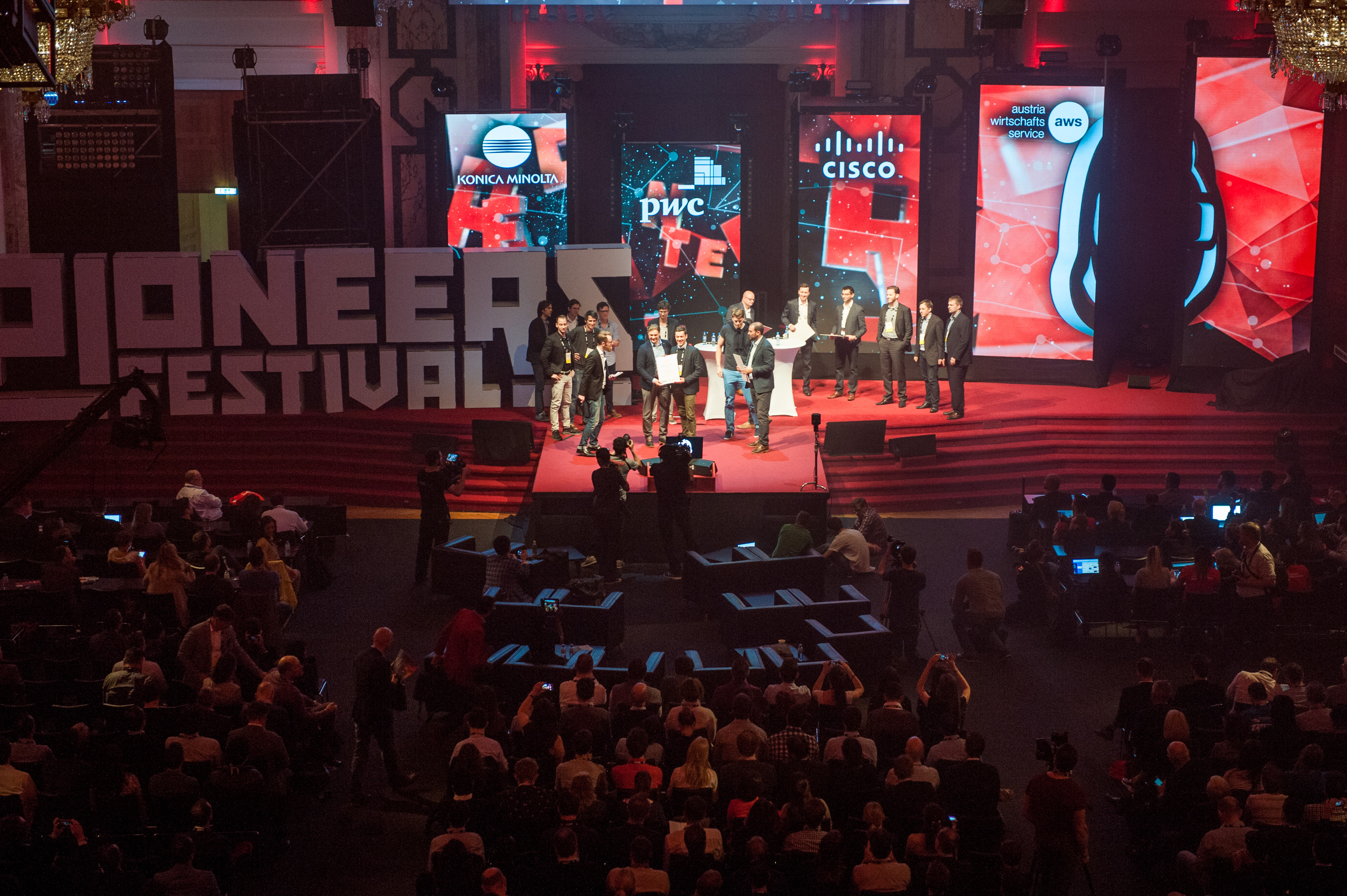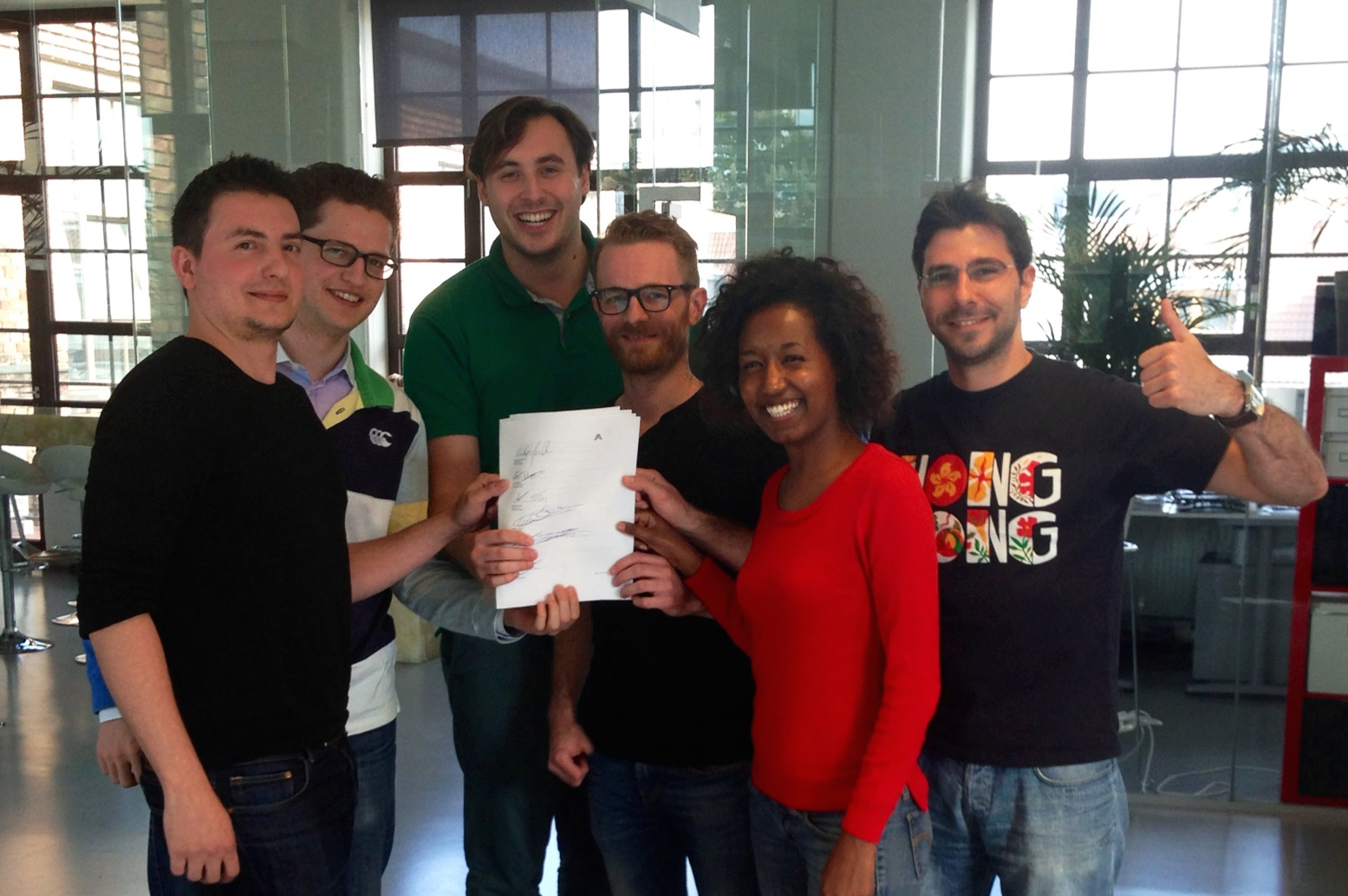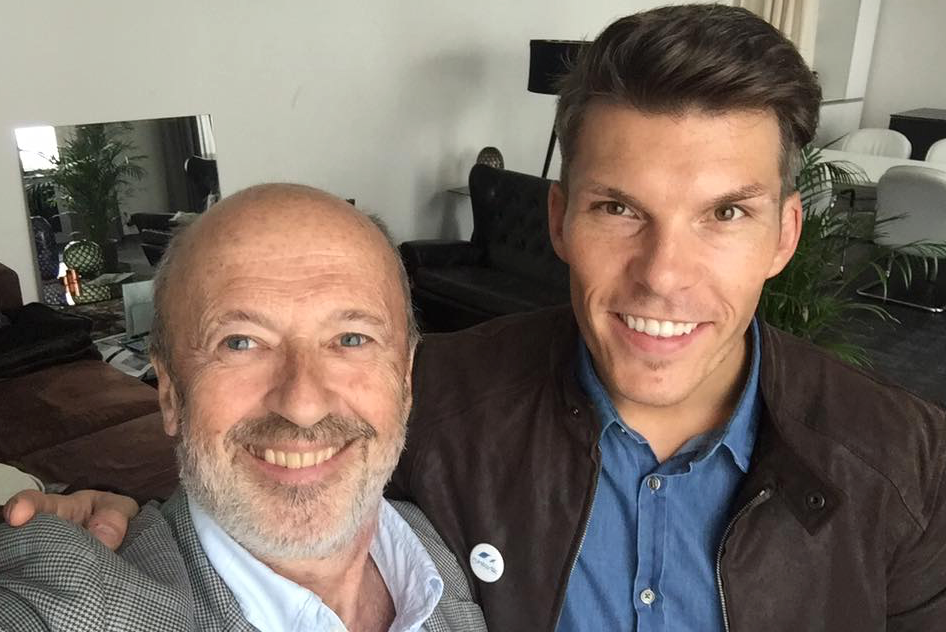To many, Austria can seem like a country of the past, one whose very charm lies in the fact that its best days are behind it. The Austro-Hungarian Empire collapsed almost 100 years ago, and, with it, the aspirations this landlocked, Central European nation of 8.5 million had to control the global stage.
Perhaps that’s why the Austrian startup scene has been so easy to overlook. With Germany to the north and the high-tech Netherlands beyond that, few have paid attention to the rapid changes taking place on the other side of the Alps.
Austria, this country of old charms, is beginning to position itself as one of the most attractive bases in the world to launch a new company. And in light of recent successes, including the biggest exit in Austrian startup history — Adidas’s $240 million acquisition of the fitness app Runtastic — there’s reason to believe the startup scene could take on a big role in Europe’s future.
Austria has a number of natural advantages its entrepreneurs are hoping to channel into a lasting infrastructure. It’s located in the heart of Europe, within a three-hour trip of every major capital on the continent. Costs of development are low, meaning it’s cheaper for companies to make mistakes early on — which is why various mobile phone carriers use Austria to test and roll out services. And while investors have been hesitant to embrace the startup market, Austria, a traditionally wealthy country, won’t lack for resources once the overall mindset catches up to that of the emerging entrepreneurial generation.
Many locals feel there’s no better place for businesses looking to raise early-stage capital. Though perhaps a bit exaggerated, that boast is substantiated by a recent study by the Global Entrepreneurship Monitor, which found Austria to be the strongest country in Europe for public pre-seed investment.
In 2015 the government devoted €289 million (about US$325 million) in grants to 3,715 startups, a commitment that has in turn encouraged a number of potential entrepreneurs and students to start new ventures. Last year, the most recognized venture capital firm in the country, Vienna-based Speedinvest, raised €90 million (about US$101 million) for its second fund.
The startup culture is young, especially in light of its historic surroundings. But Austrians sense they’re on the cusp of a qualitative leap forward, and as long as private backers continue to build on what the government is supporting, they very well might be right.
The origin story
There had always been a collaborative spirit in the Austrian startup scene, but 2011 marked the start of something different.
That was the year some of Austria’s foremost contemporary entrepreneurs met at Startup Week, an intensive two-day workshop and VC pitch forum put on with support from Speedinvest, whose initial $10 million fund had opened that same year. Participants went their separate ways following the conference, but several leading startup founders later described it as the first time the Austrian scene felt like a real ecosystem.
A second milestone came in 2012, when Johann “Hansi” Hansmann co-founded the Austrian Angels Investor Association (AAIA), along with Selma Prodanovic. One of the world’s richest countries per capita, Austria didn’t lack for money. But “there weren’t enough people who knew about how nice it is to invest in startup companies,” Hansi explained.
The group started as a gathering space for those few who did, but has expanded to bring together more than 200 investors from across the country to discuss promising opportunities at monthly meetings.
As interested investors have multiplied, so too have the events showcasing emerging Austrian businesses. Founded in 2013, AustrianStartups is a nonprofit startup association that aims to increase the visibility of local entrepreneurship and improve the ecosystem. It started connecting members via a Facebook group, and later published a 40-page “vision paper” on the future of the country’s ecosystem.
Today it has a presence in all nine federal states across the country, with regular events that draw hundreds of entrepreneurs, investors and curious members of the general public. AustrianStartups was founded by Christoph Jeschke, Vlad Gozman, Patrick Manhardt, Adiam Emnay and Can Ertugrul.
Startup Week itself has since become Pioneers Festival, a world-class conference hosted in Vienna’s Hofburg Imperial Palace. This year, more than 2,500 entrepreneurs from around the world came to talk up their ideas with more than 400 investors. Pioneers Festival co-founders Jürgen Furian and Andreas Tschas also launched the venture fund Pioneers Ventures, and are two of the most recognized members of the country’s ecosystem.

Runtastic, the fitness app acquired by Adidas last year, was already up and running by 2011. But many of Austria’s most dynamic companies are more recent. Bitmovin, founded in 2013, is a Y Combinator-backed transcoding service that improves the quality of online video. Crate, an intuitive SQL interface that sets up distributed database clusters, was founded in 2013 and won TechCrunch Disrupt Europe just a year later.
Last year, the government appointed Harald Mahrer as State Secretary, the individual tasked with fostering the development of Austrian entrepreneurship. A former angel investor himself, Mahrer has earned the nickname “Mr. Startup” for the ambitious agenda he’s set for the country’s trajectory. Earlier this year, he brought together more than 400 policymakers, scientists, business leaders and civil society figures for an Open Innovation Strategy Stakeholder Workshop to chart the course for Austrian innovation going forward.
Vienna
With a population of 1.8 million, Austria’s capital is the European Union’s seventh-most populated city. It’s sometimes referred to as the City of Dreams, in homage to Sigmund Freud, who expounded his theories on psychoanalysis through his clinical practice in the city. But the title could just as easily be a reference to Austria’s startups, roughly two-thirds of which anchor their visions in Vienna’s cosmopolitan business scene.
Vienna was the logical choice when serial investor Oliver Holle returned to Austria in 2008 looking to found a Silicon Valley-minded VC fund with a distinctly local feel. Speedinvest, the firm he founded in 2010, set itself apart with a “Work for Equity” approach, whereby the investment team takes hands-on roles in the startups they partner with. One such company, wikifolio, an alternative investing platform also based in Vienna, recently completely a €6 million round of fundraising.
Part innovation lab, part incubator and part community center, Impact Hub’s Vienna outcrop is another local pillar with an international perspective, offering everything from accelerator programs to scaling mentorship and social impact awards — all oriented toward promoting sustainable solutions to pressing issues through startup entrepreneurship.
The co-working space sektor5, which includes a community of entrepreneurs, is also recognized as a central part of the city’s startup ecosystem, in addition to MetaLab, a hacker space.
This city’s startup community is known to be collaborative. “People are willing to share their experiences and help each other out. You might notice this when visiting one of Vienna’s traditional coffeehouses,” said Can Ertugrul, a co-founder of AustrianStartups. “They would go unnoticed from the outside, but as you sip your ‘Wiener Melange’ you could find yourself sitting next to founders, investors, corporates and now also increasingly government officials, discussing ways to help improving the startup ecosystem.”
As is usually the case with national capitals, Vienna is home to much of Austria’s public startup infrastructure. The Austrian Research Promotion Agency (FFG) offers national funding for industrial research on both the national and European levels. Austria Wirtschaftsservice (AWS) is a finance service that disperses first-stage, pre-seed and seed funding to companies, including through specific science and creativity grants. Some of these subsidies are quite small (about €5,000), but on the upper end, they reach as high as €1 million. In 2015, the AWS funded 3,613 startups with €218 million and the FFG funded 102 startups with €71 million. AustrianStartups provides a list of federally available grants here.

For the local city government, the Vienna Business Agency is a point of contact for national and international companies.
Leaders in Vienna’s startup community include Daniel Horak of Conda, Stefan Kalteis and Bernhard Lehner of i5invest, Harald Katzenschläger of Dreamacademia, Andreas Klinger, CTO of Product Hunt, Yves Schulz of sektor5, Matthias Reisinger of Impact Hub, Tim Röhrich of Pioneers and investors Michael Ströc and Michael Altrichter.
Linz
Austria’s second-most important startup hub is its third-largest city. Linz has just 200,000 residents — but what it lacks in size it makes up for in deep industrial traditions and a flourishing creative economy. Named Europe’s Capital of Culture by Unesco in 2009, Linz is well-known for its flair for the digital arts and industrial engineering, in particular.
It should perhaps come as no surprise then that Linz produced what is by far the country’s most successful app. Launched in 2009, Runtastic started as a school project at the University of Applied Sciences Upper Austria. At the time of its acquisition in 2014, it had more than 140 million downloads.
Runtastic is still being run by co-founders Florian Gschwandtner, Christian Kaar, René Giretzlehner and Alfred Luger.
Also located in Linz is accelerator startup300, which was founded by Michael Eisler and Bernhard Lehner and includes a network of close to 100 entrepreneurs who are active in the city’s ecosystem. Tabakfabrik also is a popular hub for startups and creative people.

Remaining regions
The same concentration of capital and innovation that makes Vienna such an attractive location for entrepreneurship has left the rest of the country largely bereft of meaningful startup culture. There are signs, though, that things may be shifting.
Bigger than Linz but not as wealthy, Graz is an old city with a young feel. The Unesco World Heritage site is home to six universities and a thriving student population. The challenge of integrating modern buildings into the historic city has elicited world-renowned urban design innovation. Close proximity to, and deep cultural ties with, Slovenia presents unique opportunities for the city’s startups. Ideen Triebwerk is a prominent local organization promoting entrepreneurship in the city, and Managerie, run by Maria Reiner, is a popular space for startups and cultural activities.
Innsbruck is an interesting startup city because of its location. Located 150 km from Munich and 40 km from the Italian border, it is positioned in a key location for trade. The people of Innsbruck are from the mountains, where the winter is much longer. It is harder to survive there and the people are said to be the ideal entrepreneurs. Skinnovation, the first startup event on skis, has become a popular event.
Situated on the German border with a population of 150,000 and home to Red Bull’s headquarters, the state of Salzburg is regarded for its co-working space CoworkingSalzburg, founded by Romy Sigl. The investor community is very limited in the region; however, the initiative Startup Salzburg was founded to foster the community. Promising startups include Symptoma, a search engine for doctors that was recently named the most promising e-health startup in Europe.

Conclusion
Some of the prominent difficulties facing startup culture in Austria are what you would expect in any developing scene. Apart from Speedinvest, there’s a lack of large venture funds past the seed stage of funding. Few entrepreneurs have experience growing companies at the pace demanded by international VC, so up-and-comers are often left to find their own way, without strong examples to point to or thought leadership to draw from.
Austria will also need to compete with startup capital Berlin, which is bound to pull entrepreneurs from the neighboring nation. Many of the most successful startups with Austrian co-founders are now based in Berlin and London, including NUMBER26 with Valentin Stalf, and Qriously with Christopher Kahler.
Said Robin Wauters, founding editor of Tech.eu and one of Europe’s most well-regarded technology journalists, “While it’s increasingly true that great companies can be built anywhere, I believe the reality in Europe today is that for most companies based in small ecosystems are often better off looking for a nearby major hub to scale up, which requires a large pool of talent to tap from, a wide range of investment options, and the ability to attract senior management.”
Austria could offer those things, as well, but much of what’s preventing it from doing so, paradoxically, is its own more generalized success. Low unemployment saps the incentive for rapid economic change, and Austria’s otherwise abundant wealth has congealed around a set of relatively conservative investment values. Many people in the scene humble-bragged that Austrians just don’t have enough experience dealing with failure to survive the entrepreneurial gauntlet.
But change is coming to Austria, whether the country likes it or not. Recovery from the 2008 financial crash has been slow and thus far incomplete, placing acute pressure on policymakers to devise new approaches to unfamiliar economic hardships. The European refugee crisis also has had a particularly jarring effect on this tiny, mountainous country, which flirted with complete political upheaval during its most recent nationwide elections.
Refugees Work, an Impact Hub Vienna-backed job-listing platform that pairs employers with the more than 30,000 refugees already seeking to enter the Austrian labor market, is just one illustration of how the innovation sector can rise to meet these and other challenges. It will take continued support from the government, and greater engagement from the private sector, but don’t be surprised if we start seeing many more like it.































Comment